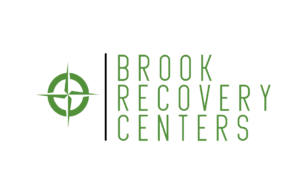Cocaine Addiction And Abuse
Understanding Cocaine
Cocaine is a white powdery substance that reacts with the body’s central nervous system, producing energy and euphoria. It is most commonly snorted, but can also be smoked (also known as “freebasing”) or dissolved in water and injected. Cocaine is also referred to as coke, blow, or powder.
Although most people today recognize that Cocaine is addictive, thousands are still drawn to it. As many as 1,800 Americans experiment with Cocaine for the first time each day.
Online Addiction Counseling
Get professional help from an online addiction and mental health counselor from BetterHelp.
Paid Advertising. We may receive advertising fees if you follow links to the BetterHelp site.
Cocaine Effects And Abuse
Any use of Cocaine is considered abuse because it is an illegal substance. Cocaine is a central nervous system stimulant that affects the brain by stimulating high levels of dopamine, a brain chemical associated with pleasure and reward. Over time, Cocaine negatively effects every part of the body with potential for severe long-term effects. It can cause changes to genetics in brain cells, nerve cells and proteins, among other permanent effects.
Other effects of using Cocaine include:
- Talkativeness
- Excitement
- Alertness
- Anxiety
- Overconfidence
How people use Cocaine also alters the potency and duration of the effects. The effects of snorting it are short-lived, lasting approximately 15-30 minutes. Smoking or injecting Cocaine is more intense but lasts for an even shorter period, about 5 to 10 minutes. Most Cocaine users will dose frequently in order to maintain the desired effects. Injecting the drug poses a higher risk of overdose than snorting.
Cocaine abuse is particularly dangerous because continued use can cause strain on the heart. The most common cause of death in frequent Cocaine users is stroke or cardiac arrest. If you or someone you know is abusing Cocaine, get help now.
Looking for a place to start?
Join the thousands of people that have called a treatment provider for rehab information.
Free and confidential
Available 24/7
Access to professional treatment
Addiction To Cocaine
Cocaine is a highly addictive drug, but it may be hard to recognize an addiction to it. Craving Cocaine and ignoring the consequences that come with it are signs of an addiction.
The psychological addiction is often the hardest part to overcome, although there are undeniable physical symptoms of addiction as well. Someone who uses Cocaine frequently will develop a dependence on it, meaning they need to have it in order to feel normal. Once a dependence has developed, a tolerance will develop and withdrawal symptoms will occur when stopping use.
Once someone becomes addicted to Cocaine, it can be very hard to stop. This is because Cocaine abnormally increases the level of dopamine in the brain, eventually reprogramming the brain reward system.
Cocaine And Other Drugs
Many people who experiment with Cocaine usually do so in environments where other substances are being used. For this reason, many people with a Cocaine addiction may also have a dependence on other substances, such as alcohol or Marijuana. This is known as poly-drug use and is especially dangerous, as it increases the risk of fatal overdose.
Cocaine and alcohol are frequently used together, to the point where alcohol can be a trigger for recovering Cocaine users. For this reason, it is important to abstain from all drugs during recovery. Using Heroin and Cocaine together (known as a “speedball”) is arguably the most dangerous of all drug combinations that include Cocaine.
Check if my insurance covers rehab
Addiction Center is not affiliated with any insurance.
Cocaine Statistics
More people are admitted to emergency rooms for Cocaine-related issues than any other illicit substance. Of those individuals, 68% had more than one drug in their system.
1
century
Cocaine hydrochloride was extracted from the coca plant more than a century ago.
14,666
deaths
There were 14,666 Cocaine-linked overdose fatalities in America in 2018.
35 to 44
years old
As of 2018, adults aged 35 to 44 had the highest Cocaine overdose rates.
Treating A Cocaine Addiction
An addiction to Cocaine can be hard to beat. However, help and resources are available for people who are ready to take their life back. Learn more about treatment and recovery for Cocaine addiction or contact a treatment provider to discuss rehab options for you or your loved one.
Featured Centers Offering Treatment for Cocaine Addiction


Published:
Author
Jeffrey Juergens

-
Jeffrey Juergens earned his Bachelor’s and Juris Doctor from the University of Florida. Jeffrey’s desire to help others led him to focus on economic and social development and policy making. After graduation, he decided to pursue his passion of writing and editing. Jeffrey’s mission is to educate and inform the public on addiction issues and help those in need of treatment find the best option for them.
- More from Jeffrey Juergens
Reviewed by Certified Addiction Professional:
Theresa Parisi

Theresa Parisi is a Certified Addiction Professional (CAP), Certified Behavioral Health Case Manager (CBHCM), and International Certified Alcohol and Drug Counselor (ICADC) with over 12 years of experience in the addiction treatment field.
- More from Theresa Parisi
Sources


Recovery Starts Today
Call Now For Addiction Support




Recovery Centers of America at Danvers
Danvers , MA

Aftermath Addiction Treatment Center
Wakefield , MA

Banyan Treatment Centers – Massachusetts
Boston , MA


Recovery Centers of America at Westminster
Westminster , MA

Clearbrook Treatment Centers
Baldwinville , MA


Newport Academy – Teen Rehab Center
Bethlehem , CT


Newport Academy – Teen Treatment Center
Fairfield , CT


Serenity Mountain Recovery Center for Women
Waymart , PA

Recovery Centers of America at Raritan Bay
South Amboy , NJ